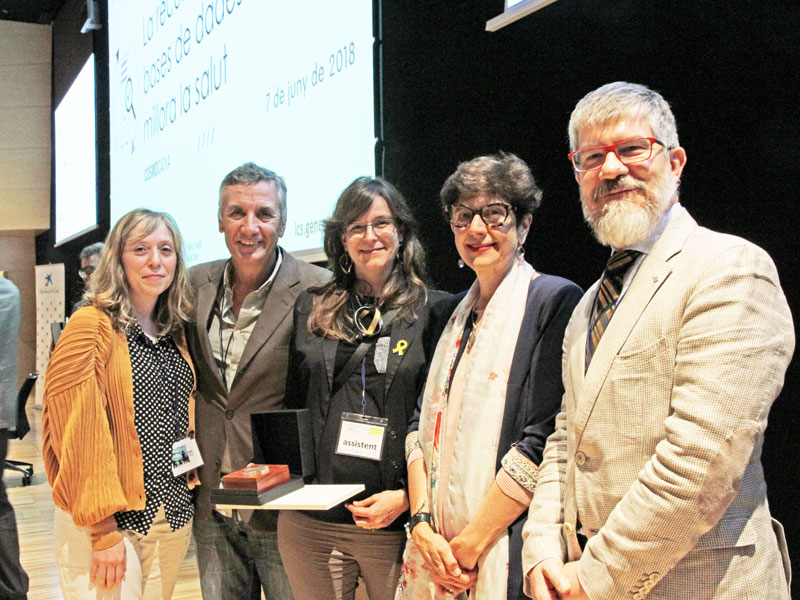Beatriz Mothe awarded ex aequo at the 10th Research Symposium of the ICS

The 10th Research Symposium of the Catalan Health Institute (ICS) and the 11th Research Symposium of the Primary Health Care Research Institute (IDIAP) Jordi Gol were held jointly on 7 June 2018. The central theme of the event was the use of large clinical data bases to carry out research to improve health.
The event was closed with the award ceremony for the ICS Research Prizes, which recognize research excellence in ICS hospitals and outstanding young medical researchers. In this second category the ICS Scientific Advisory Board awarded ex aqueo to Dr Elena Elez, of the Vall d'Hebron University Hospital and Dr Beatriz Mothe of Germans Trias. Dr Mothe is a doctor in the HIV Unit in the Infectious Diseases Service at the Germans Trias University Hospital on Campus Can Ruti. Her doctoral thesis centred on immune, viral and genetic mechanisms that determine the control of infection by HIV in the body and could be included in the design of future therapeutic vaccines. She is an associate investigator at the research group Host Genetics and Cellular Immunity at the Aids Research Institute IrsiCaixa and is also affiliated to the Germans Trias i Pujol Research Institute (IGTP). She co-directs the Vaccines, Immunotherapies and Pharmacology Group at the Fight AIDS Foundation, where she coordinates the development of clinical trials in the field of therapeutic vaccines and strategies to eradicate HIV.
The Challenge of large clinical data bases
The 10th Research Symposium of the Catalan Health Institute (ICS) took as its central theme the use of large clinical data bases for research to improve health. Recently, there has been much talk of Big data and Real World Data. In Catalonia important research facilities are being developed around the data bases PADRIS, SIDIAP and others, which allow access to an enormous amount of clinical data for researchers. This is creating a new field of research with the associated new technical tools which make use of the data possible. Why are these big data bases important? What new challenges do they bring? What is their potential?
To answer these questions the symposium programme explained several example cases, including the GCAT│Genomes for Life Project, based at the IGTP. GCAT is a prospective study of the genomes of the geographical area of Catalonia and their associated medical data. It is an ambitious biomedical project that brings together scientific, medical and social interest. 20,000 people have participated in the same biomedical research project to help investigators answer the questions related to our health and treatment for illnesses. GCAT is designed to study genetic and environmental factors that lead to the appearance of chronic disease in the general population. Many of these diseases, such as cancer, diabetes, cardiovascular and respiratory diseases, affect a large number of us and are the main causes of mortality. They also contribute to elevated health costs due to their chronic nature.
